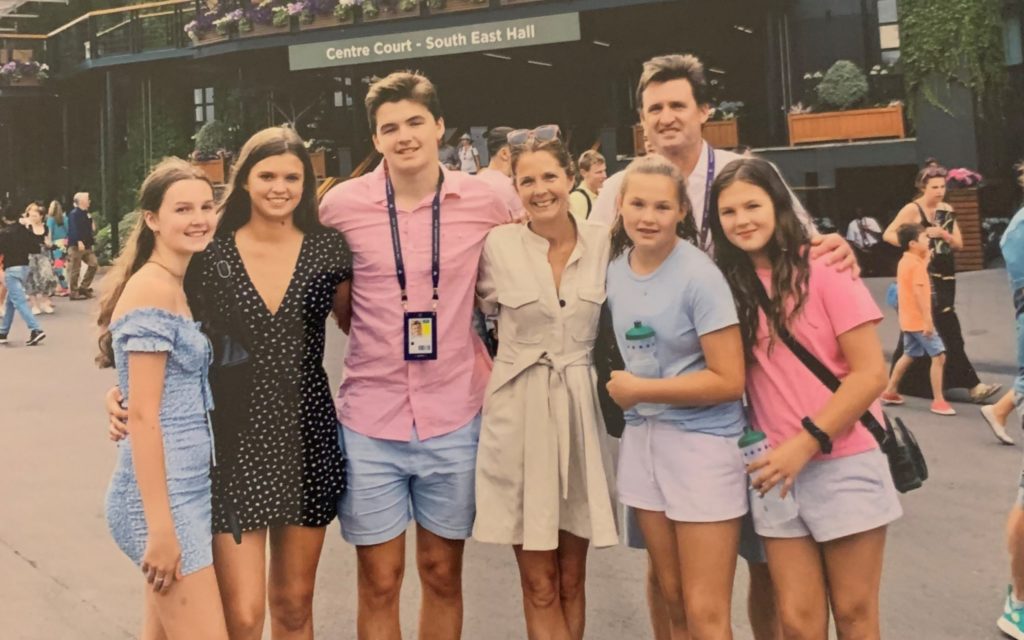
Out jogging along the seawall in Vancouver’s Stanley Park, Grant Connell felt disorientated and unable to hold onto his cellphone before tumbling to the ground end over end. When he managed to get himself up onto a bench, his first thought was, “I hope it’s a heart attack.”
Connell, 54 at the time, had been delinquent in taking his high blood pressure medication and knew that a worse self-diagnosis than cardiac arrest would be that he was having a stroke.
It was February 19, 2020, and he was indeed having a stroke. At first, he was hesitant to ask for help because he feared people would think he was drunk.
Fortunately, someone offered to help and he immediately asked them to call 911. Fading in and out of consciousness, he remembers soon hearing a (ambulance) siren and thinking, as he lay on his back on a concrete path, “Oh man I actually have a chance here,” before passing out.
A world-class player who ranked as high as No. 67 in singles, defeated champions such as Ivan Lendl, Jim Courier and Andres Gomez, was No. 1 in the ATP doubles rankings for 17 weeks and played in three Wimbledon doubles finals, Connell was facing a challenge unlike any he encountered in 12 years on the pro tennis tour.
“When I was brought into the ambulance,” he recalls, “I heard them yelling to get a vein and someone shaking me and asking me for my next of kin. Then I blacked out and I think I was out for maybe 12 hours or something.”
When his wife Sarah got to the hospital, the head nurse in the ICU said to her, “listen Mrs. Connell, if your husband wakes up he’ll never walk again.”
His blood pressure was over 200 and initially, medication failed to get it under control. “I heard one nurse say, in the middle of the night when she was looking at my chart, ‘I’ve never seen so much blood pressure medication in one human being in my life,’” he remembers.
After two days the number finally came down. He had regained consciousness and was determined to prove that head nurse wrong. “I never thought that I wasn’t going to be able to walk,” he says. “It was really difficult to learn how to do it again – but that was something I never considered.”
Today, two years later, he walks with a limp and still has very limited use of his left-side (he’s a lefty) arm and hand.
But more than any physical ails, Connell’s first reaction upon coming to in that bed at the Vancouver General Hospital was recognizing that his mental and emotional faculties were still intact.
“I was happy that I could understand people and that they could understand me and that my brain was still functioning well, my memory was good,” he says. “I had done research on stroke (there’s also a family history) and did know that you could go blind – my left eye is damaged (24 per cent vision) so I can’t drive. But if the blood is on top of your brain – as opposed to mine which was an inner-cranial brain bleed – if it’s on top, that’s when it really fries your connections and you’re done.”
Connell was far from done and, after a month in the hospital, he was transferred to a rehab residence and was not able to return home for another three months until the end of May.
His recovery has been slow and laboured but today he goes for five to 10-kilometre walks and has been back working in his Vancouver realty business since six months after the stroke.
“Realtors are independent contractors anyway,” Connell says about his job. “I’ve been in the business for 20 years and I’ve actually had a pretty successful two years now.”
With characteristic Connell mischievous humour, he adds, “I tend to call it a handi-perks. The perks of being handicapped. I might be getting a bit more business than I normally would. It gets me out. I Uber a lot, and I’m not averse to taking the bus.”
During his career, a highlight was almost singlehandedly lifting Canada to the World Group of Davis Cup for the first time by winning all nine sets – two singles and the doubles with Glenn Michibata – against the Netherlands (Paul Haarhuis and Mark Koevermans) on a memorable, cold, late-September weekend in 1990 at the National Tennis Centre in Toronto (picture below).

After retiring in 1997, Connell was executive director of Tennis British Columbia from 1998-2003, Davis Cup captain from 2001 to 2004 and tournament director of the Canadian Open (Rogers Cup) in Toronto in 2006, all the while starting a work-life away from the sport. “I can never complain about being overlooked when they talk about Canadian tennis players because I really took myself out of it,” he says, “purposely went on trying to find myself outside of tennis – with a family and then a career. I was never one of these guys who likes to look back. I like to look forward.”


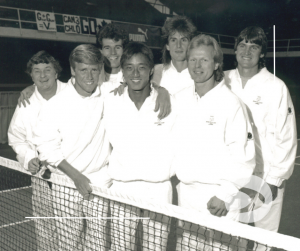
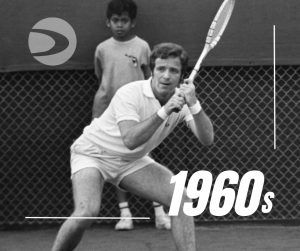

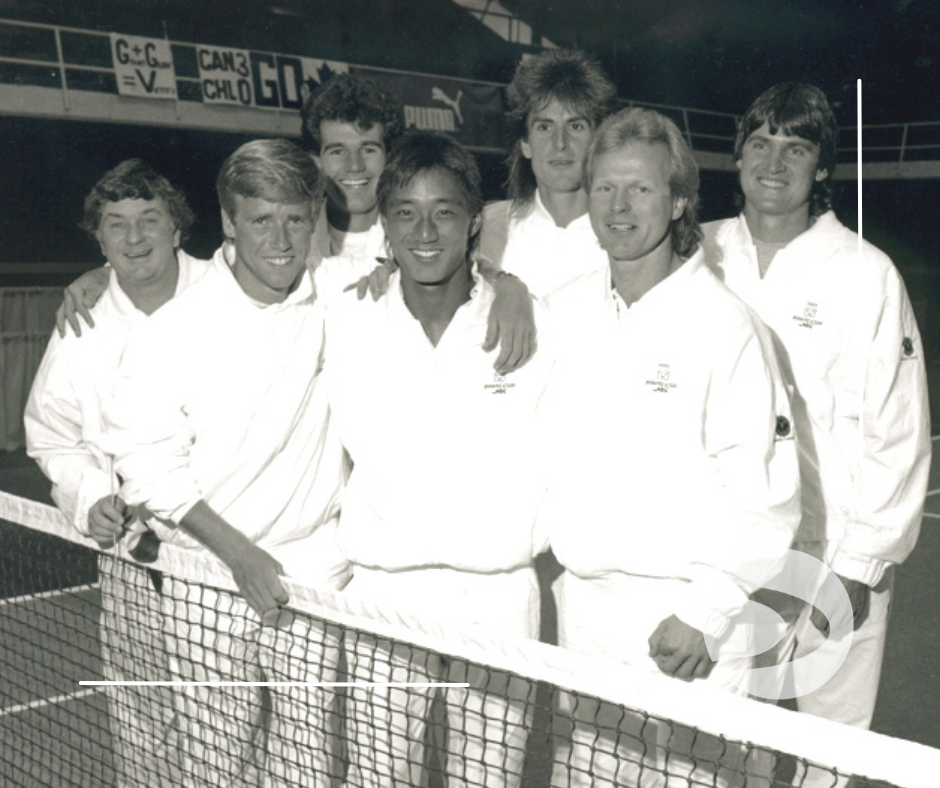
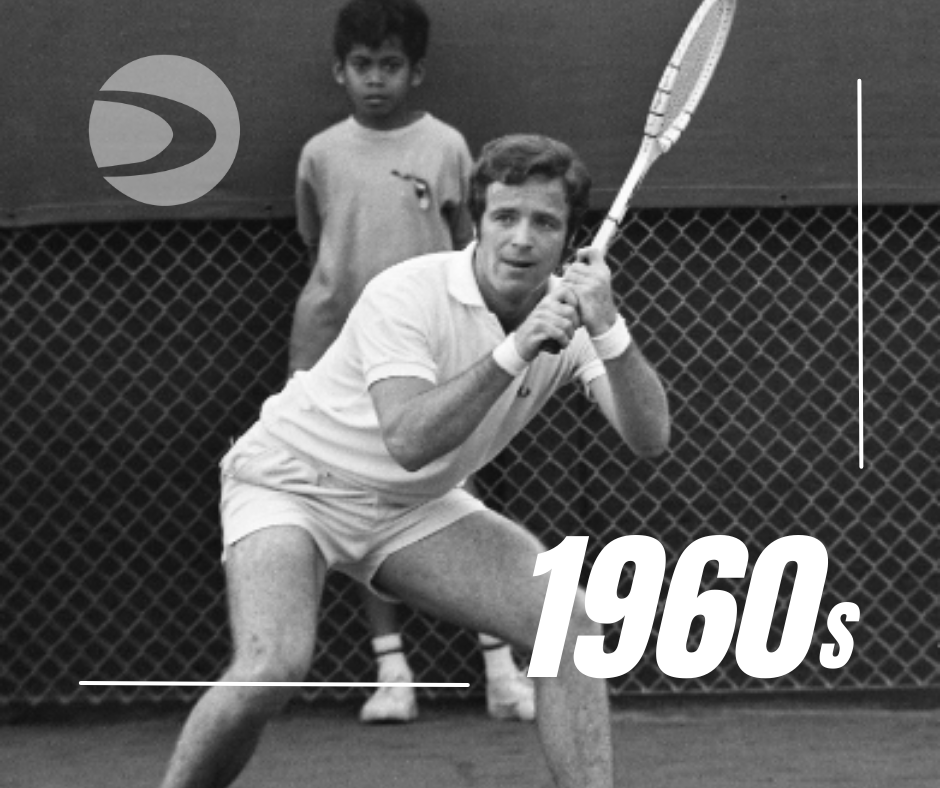

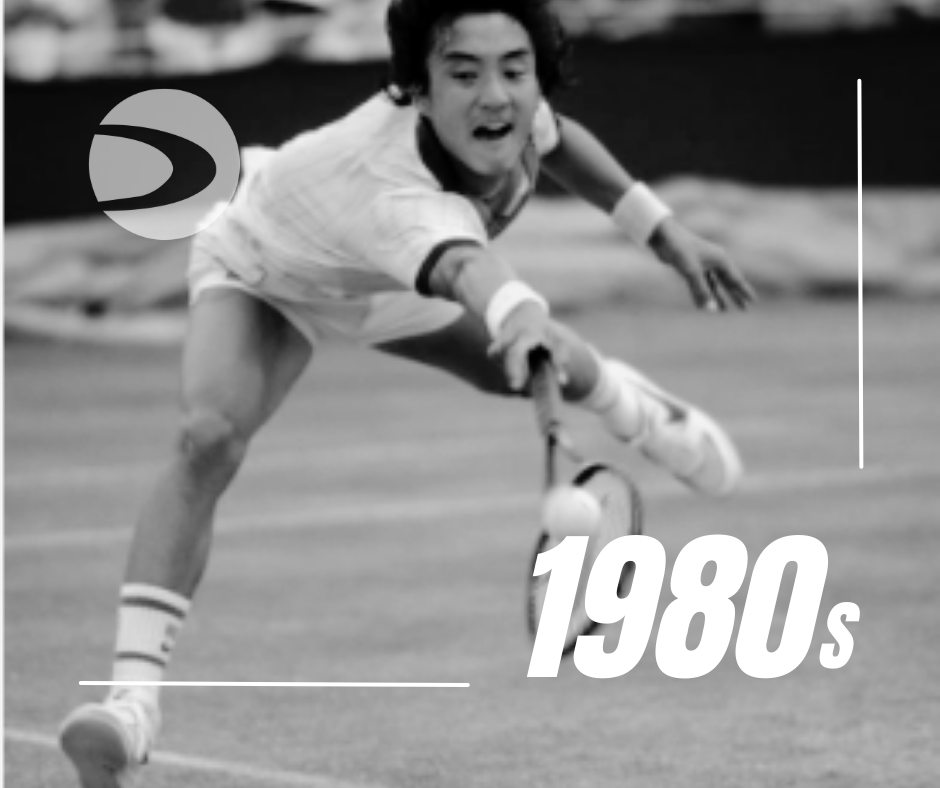
One Response